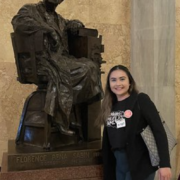No more surprises: Congress and patients alike sick of surprise billing

By NCL Health Policy intern Alexa Beeson
This July, the House Energy and Commerce’s Health Subcommittee passed the No Surprises Act (H.R. 3630) to protect patients from surprise billing. The Senate Health, Education, Labor and Pensions Committee also passed its companion to address surprise billing, the Lower Health Care Costs Act (S.1895). These bills were being considered after a press conference at which President Trump called for reform in surprise billing.
Stakeholder witnesses at the House hearing this June on H.R. 3630 included patient, provider, and insurance payer groups. Reimbursement models were discussed at length, but the unifying theme was that patients should be held harmless in surprise billing situations.
Surprise billing happens mostly in a small subsect of out-of-network providers; the patient has no idea about who’s in or out of network. Some professionals are out-of-network technicians subcontracted by an in-network facility, such as a last-minute anesthesiologist switch for a surgery, or any other non-disclosed provider. To get reimbursed for their services, providers send a bill to the patient for whatever wasn’t covered by the insurance company.
Surprise billing also occurred among patients who should receive reduced prices for care. Johns Hopkins Hospital filed suit on more than 2,400 patients in the last decade, collecting the equivalent of 0.03 percent of its operating revenue. Some of these patients were never told about their right to charity care, and many who qualify never received a discounted rate. These bill collections are inconsequential for Johns Hopkins but could bankrupt a patient.
Legislation to address balance or surprise bills will protect patients, ensuring they will only have to pay in-network rates for out-of-network emergency care. This will help patients avoid bills that can set them back, sometimes, hundreds of thousands of dollars. Although surprise bills only come from a small portion of providers, 1 in 7 insured adults will receive a surprise medical bill from an in-network hospital. The Kaiser Family Foundation found that 70 percent of such patients were not aware that the provider was out-of-network when they received the care.
Panelist Sonji Wilkes, a patient advocate, presented testimony about her struggle with a surprise bill sent after the birth of her son, who was diagnosed with hemophilia. That child was treated by a charitable out-of-network hematologist who did not charge them for her services. However, the NICU that observed the boy was subcontracted to a third-party provider. This meant that the NICU was out-of-network. The Wilkes were sent a $50,000 bill by the hospital that still haunts them 15 years later.
Thomas Nickels, the executive vice president of the American Hospitals Association, claimed that fixed reimbursement rates, such as a median benchmark or percentage of the Medicaid reimbursement value, would disincentivize insurers from maintaining adequate provider networks. Nickels supported the Alternative Dispute Resolutions method, which involves baseball-style arbitration where providers and payers settle on reimbursement value on a case-by-case basis.
Jeanette Thornton, a senior vice president at America’s Health Insurance Plans, argued that the New York model of baseball-style arbitration would create immense clerical burden, resulting in lost time and greater administrative costs. She argued the arbitration reimbursement model would raise costs for patients in the end. Instead, she advocated for the government-dictated fixed reimbursement rates.
Both versions of the bill call for a benchmark to resolve payments between insurance plans and out-of-network providers. This benchmark says health plans would reimburse providers with the median in-network rate already contracted within specific geographic areas. The House bill contains binding arbitration as a fallback in case either the provider or payer decide the payment was an unfair price.
The National Consumers League supports Congress’ tackling of this issue of surprise or balance billing. NCL has taken no position on how these bills are settled between the payer and provider, as long as patients are protected from outrageously expensive bills they can never hope to pay and were never anticipating. In addition, medical debt is the greatest contributor to consumers declaring bankruptcy, and balance billing is a contributor to that troubling consumer issue. The bottom line is that a bill for medical services should never cause bankruptcy, and a patient should never have to choose between medical treatment and food or housing. We are hopeful this issue will be resolved during this Congressional session.
Alexa is a student at Washington University in St. Louis where she studies Classics and Anthropology and concentrates in global health and the environment. She expects to graduate in May of 2020






















